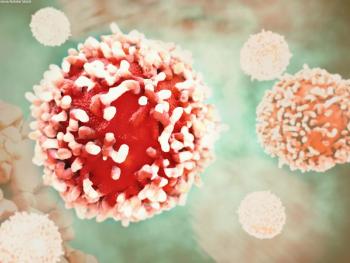
This suggestion is based on statistically significant distinctions observed in survival rates of patients with single hormone receptor-positive breast cancer vs double hormone receptor-positive/double hormone receptor-negative breast cancer.

Your AI-Trained Oncology Knowledge Connection!



This suggestion is based on statistically significant distinctions observed in survival rates of patients with single hormone receptor-positive breast cancer vs double hormone receptor-positive/double hormone receptor-negative breast cancer.

Researchers noted that these findings do not indicate that insurance alone will eliminate racial and ethnic disparities in breast cancer; however, it is one systemic change that may ameliorate consistent disparities.

Researchers have yet to determine the optimal use of the AI system, though assessments in the clinical setting indicated that the technology could enhance screening results, potentially identifying breast cancer earlier than the standard of care.

The device allows plastic surgeons and other supervised specialists to ensure consistently superior, realistic, and customizable results for nipple-areola complex tattooing.

These data indicate the need for surveillance and opportunities for intervention in this population.

These results highlight the increased prevalence of cardiovascular risk factors in these patients, and the need for personalized risk assessments for cardiac complications following cardiotoxic therapies.

This data could present a non-invasive option for characterizing tumor heterogeneity to improve personalized prognosis and treatment of patients with breast cancer.

This study provides data for consideration when discussing with patients the use of dietary supplements while undergoing chemotherapy.

Opportunities to further eradicate opioid use as a complication of cancer care should continue to be explored regardless of the data presented according to researchers.
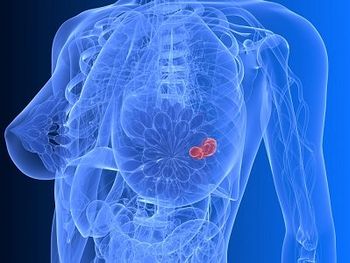
Following breast cancer diagnosis, non-breast cancer causes of death represented a significant number of deaths in this population, providing crucial understanding on how survivors should be counseled on future health risks.

The breakthrough therapy designation was filed for the use of leronlimab as an adjuvant therapy for patients with metastatic triple-negative breast cancer.

Though physical activity guidelines are largely based on chronic diseases like cardiovascular disease and diabetes, these data suggest they are important to cancer prevention as well.

Breast cancer survivors who underwent chemotherapy or hormone therapy were found to be more likely to have a higher symptom burden and lower overall sense of well-being than noncancer counterparts.
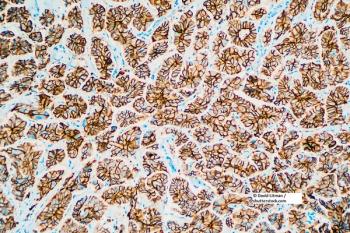
An analysis of the results of the phase III PANTHER trial showed that a combination of tailored dose-dense adjuvant chemotherapy and trastuzumab decreased the relative risk of relapse for patients with HER2-positive breast cancer.

A recent study shows the importance of information regarding adverse events of cancer treatment for prospective patients.

The use of common heart drugs in conjunction with cancer therapy led to reduced cardiotoxicity in patients with breast and hematological cancers.

Single dose radiotherapy may be as effective as 5 doses for patients with spinal canal compression from metastatic cancer.
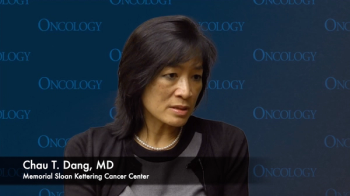
The breast cancer expert spoke about the results presented in the trial, noting the benefit seen with longer follow-up.
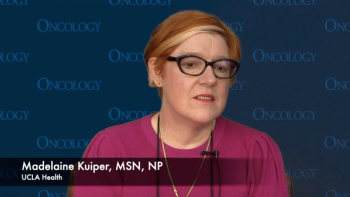
The nurse practitioner from UCLA Health spoke about the expanding treatment options in this setting.
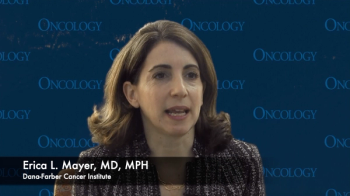
The expert explained her research focused on the role of CDK4/6 inhibitors in treating breast cancer.

The FDA granted accelerated approval to trastuzumab deruxtecan for the treatment of adult patients with unresectable or metastatic HER2-positive breast cancer.

Seattle Genetics announced the development after data was presented at the 2019 San Antonio Breast Cancer Symposium.
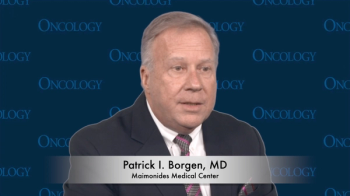
The breast cancer expert discussed 2 advances in HER2-positive breast cancer treatment that healthcare providers should look for.

The assistant professor from the University of Michigan talked about personalizing radiation treatment in patients with breast cancer and how genomic signatures can be used to identify the radiation needs of patients.
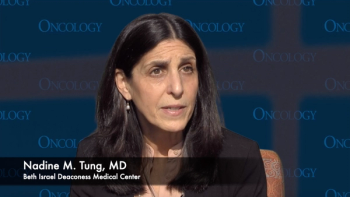
The cancer risk and prevention expert discussed germline testing and the benefits it lends to patients with breast cancer.